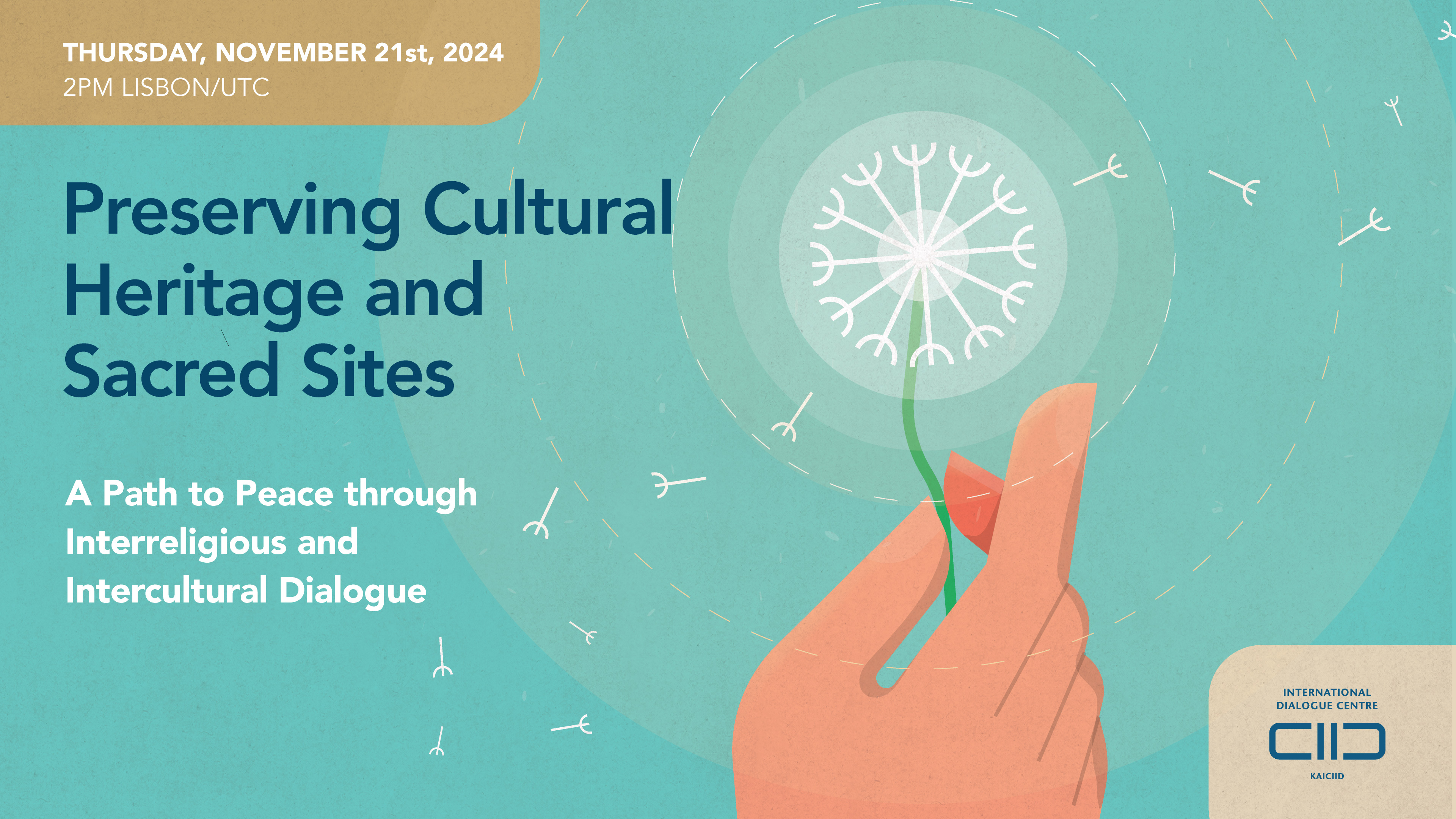Marking the International Day of Tolerance this webinar shall create space to reflect on the importance of cultural diversity, mutual understanding, connection between people and peaceful coexistence. Shared heritage in sacred sites, and their protection, is vital for fostering interreligious and intercultural understanding. These spaces hold deep religious, cultural, and historical significance and are at times at risk due to socio-political, environmental, and security challenges.
This webinar will explore regional approaches to protecting cultural heritage and sacred sites through interreligious and intercultural dialogue (IRD and ICD). By examining case studies and strategies, sharing knowledge and best practices, it shall highlight the role of IRD and ICD in addressing challenges and empower participants to implement initiatives in their own communities to safeguard their shared heritage.

